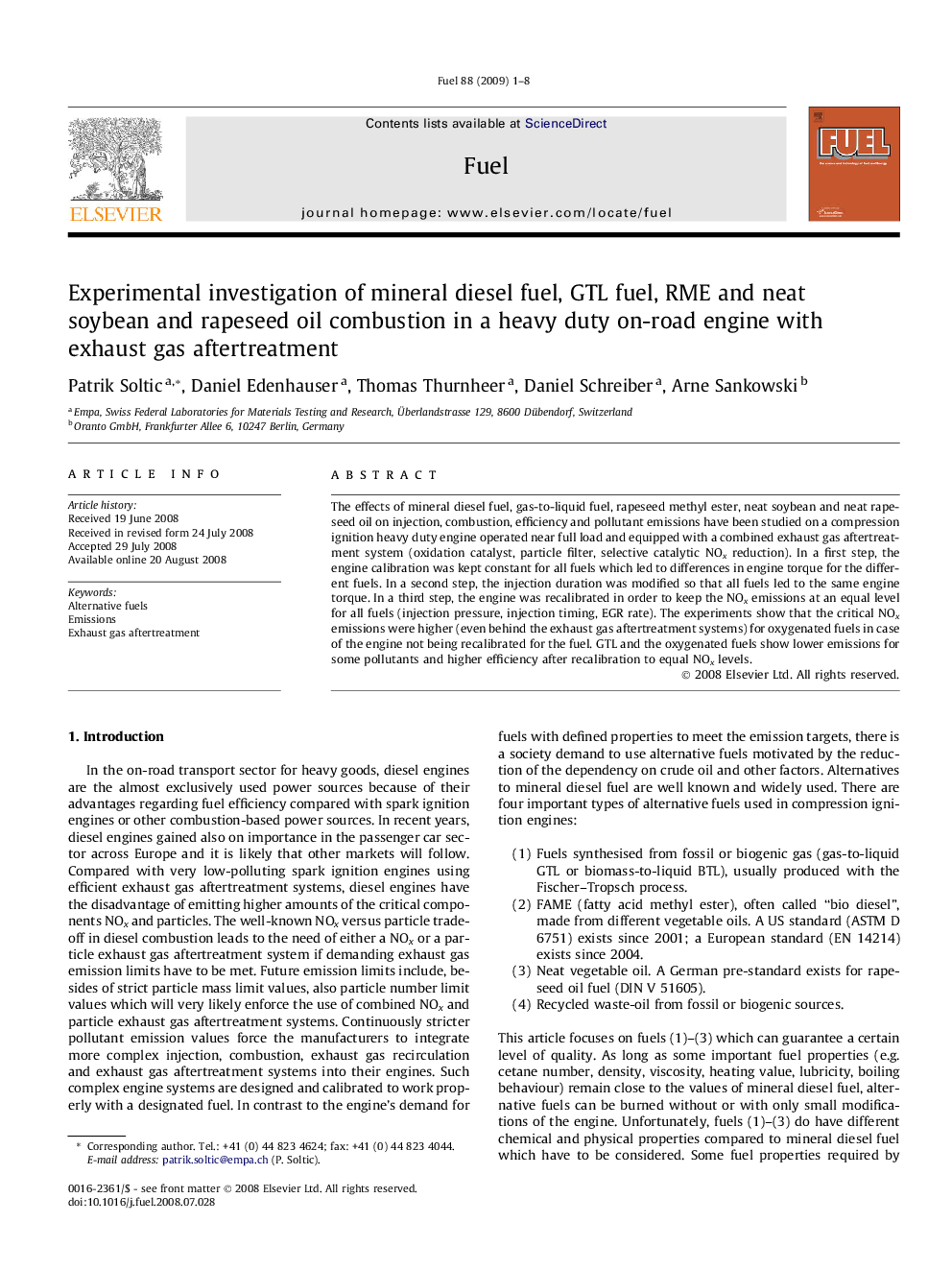| Article ID | Journal | Published Year | Pages | File Type |
|---|---|---|---|---|
| 208144 | Fuel | 2009 | 8 Pages |
The effects of mineral diesel fuel, gas-to-liquid fuel, rapeseed methyl ester, neat soybean and neat rapeseed oil on injection, combustion, efficiency and pollutant emissions have been studied on a compression ignition heavy duty engine operated near full load and equipped with a combined exhaust gas aftertreatment system (oxidation catalyst, particle filter, selective catalytic NOx reduction). In a first step, the engine calibration was kept constant for all fuels which led to differences in engine torque for the different fuels. In a second step, the injection duration was modified so that all fuels led to the same engine torque. In a third step, the engine was recalibrated in order to keep the NOx emissions at an equal level for all fuels (injection pressure, injection timing, EGR rate). The experiments show that the critical NOx emissions were higher (even behind the exhaust gas aftertreatment systems) for oxygenated fuels in case of the engine not being recalibrated for the fuel. GTL and the oxygenated fuels show lower emissions for some pollutants and higher efficiency after recalibration to equal NOx levels.
